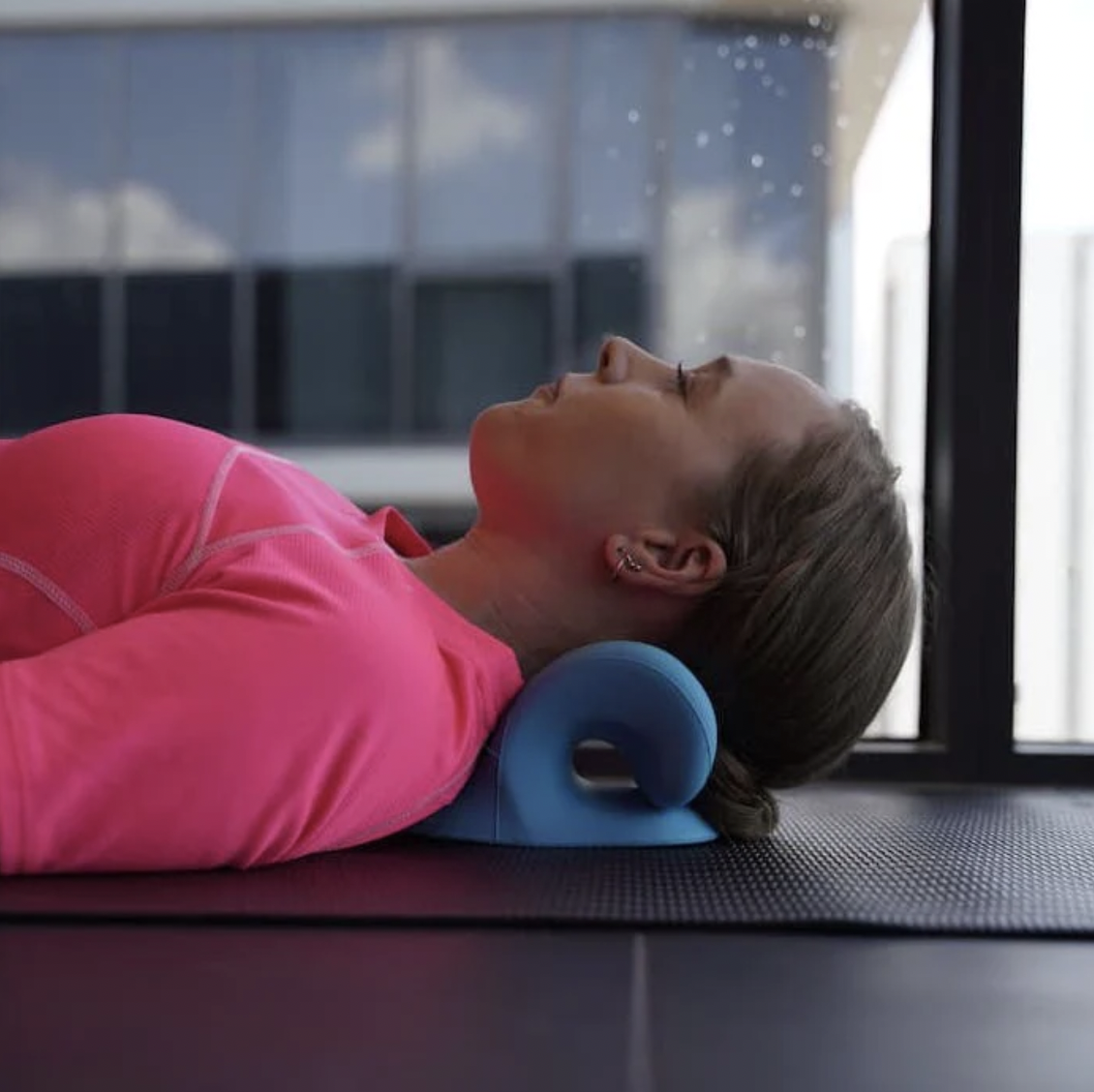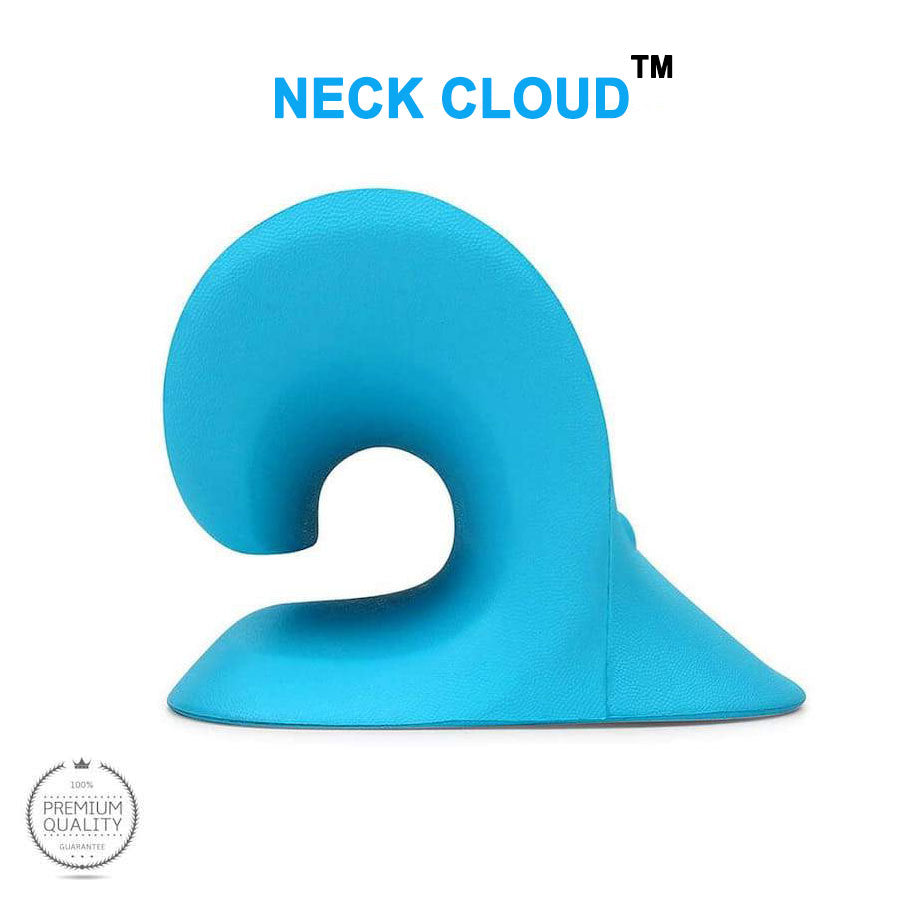Improve Your Stance and Decrease Neck Pain with the Neck Cloud
Improve Your Stance and Decrease Neck Pain with the Neck Cloud
Blog Article
The Influence of Stress on Neck Pain: Strategies for Lowering Tension and Pain
In today's fast-paced globe, it's obvious that stress has come to be a common variable in the beginning and worsening of neck discomfort. The complex relationship between stress and anxiety and muscle stress usually leaves individuals seeking alleviation from the pain that follows. By exploring targeted strategies focused on reducing tension and promoting relaxation, one can start to attend to the source of neck discomfort and job towards a much more well balanced state of wellness. Join us on a trip to unravel the influence of stress and anxiety on neck pain and uncover reliable means to minimize pain and improve general top quality of life.
Comprehending Stress-Related Neck Pain
Neck discomfort is a typical complaint that can frequently be credited to stress and anxiety. Stress-related neck discomfort can show up as tension, rigidity, or discomfort in the neck and shoulder location. The link in between tension and neck discomfort lies in the body's physical reaction to tension, which can cause muscle mass stress and tightness in the neck muscle mass. Chronic stress can bring about consistent neck discomfort and worsen status quo like cervical spondylosis or muscular tissue strains.

Identifying Common Tension Locations
One common stress area is the neck, where stress often manifests physically. Tension frustrations, stiff neck muscle mass, and restricted variety of movement are usual signs and symptoms of stress-related neck stress. Being conscious of these common stress locations can assist individuals recognize the physical signs of stress and take actions to resolve them before they intensify into chronic discomfort or discomfort.
Executing Relaxation Methods
Relaxation methods are important tools for lowering neck discomfort created by tension. Additionally, tasks like yoga exercise and tai chi include both physical motion and leisure, making them efficient techniques for reducing anxiety and neck discomfort. By incorporating these leisure methods into your everyday routine, you can aid manage stress degrees, decrease tension in the neck, and ease discomfort associated with stress-induced over at this website neck discomfort.
Integrating Self-Care Practices
Incorporating self-care techniques is important for keeping general health and managing stress-related neck pain successfully. Taking part in routine physical task, such as mild extending exercises or yoga exercise, can aid alleviate stress in the neck and shoulders. Exercising great posture throughout the day and taking frequent breaks from prolonged sitting or display time can likewise prevent pressure on the neck muscular tissues.
In addition, focusing on sufficient sleep and establishing a consistent sleep regimen can contribute dramatically to minimizing tension levels and advertising relaxation. Creating a soothing going to bed routine, such as reviewing a publication or taking a warm bath, can aid prepare the body and mind for peaceful sleep. Furthermore, preserving a well balanced diet plan abundant in nutrients and staying hydrated can sustain total wellness and reduce swelling that may worsen neck discomfort.
Including mindfulness practices, such as deep breathing workouts or meditation, can aid handle stress and promote leisure. Taking some time for oneself, participating in pastimes, and establishing limits to safeguard personal time are likewise crucial facets of self-care that can add to lowering anxiety and alleviating neck pain.
Looking For Expert Aid
Exactly how can people properly resolve relentless neck discomfort that is affecting their every day life and wellness? Looking for professional help can be a vital action in managing and easing neck discomfort. Consulting with health care professionals such as chiropractic practitioners, imp source physical specialists, or orthopedic specialists can provide important understandings and tailored therapy strategies. These professionals can carry out comprehensive assessments to identify the underlying causes of neck pain and recommend suitable interventions.
Chiropractors concentrate on spinal manipulation methods to improve alignment and decrease tension in the neck area. Physical therapists provide targeted stretches and workouts to enhance muscle mass, improve flexibility, and enhance total neck feature. Orthopedic specialists can give advanced clinical interventions such as shots or surgical options for extreme instances of neck discomfort.
Verdict

Stress-related neck discomfort can manifest as tension, rigidity, or discomfort in the neck and shoulder area. The connection in between stress and anxiety and neck pain lies in the body's physiological feedback to stress, which can result in muscle tension and tightness in the neck muscle mass. Tension migraines, rigid neck muscles, and restricted array of activity are usual signs and symptoms of stress-related neck stress. By including these leisure strategies right into your daily regimen, you can assist manage stress degrees, lower stress in the neck, and ease discomfort my company associated with stress-induced neck discomfort.

Report this page